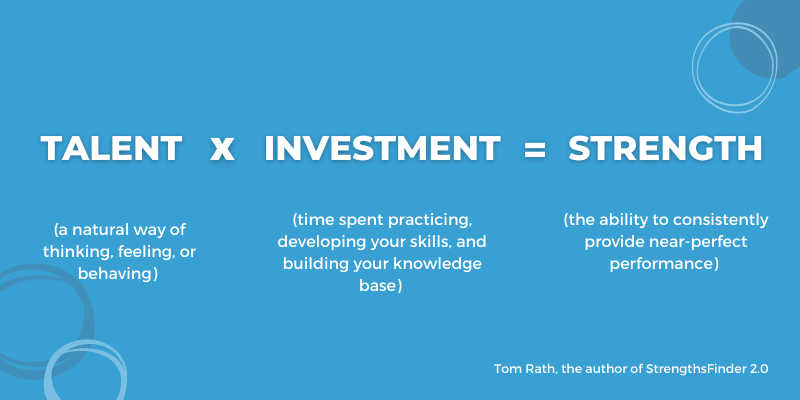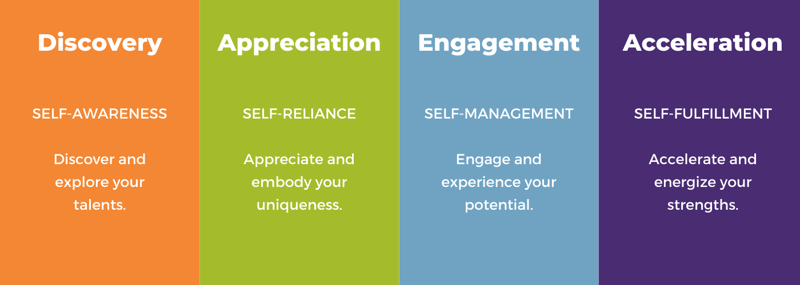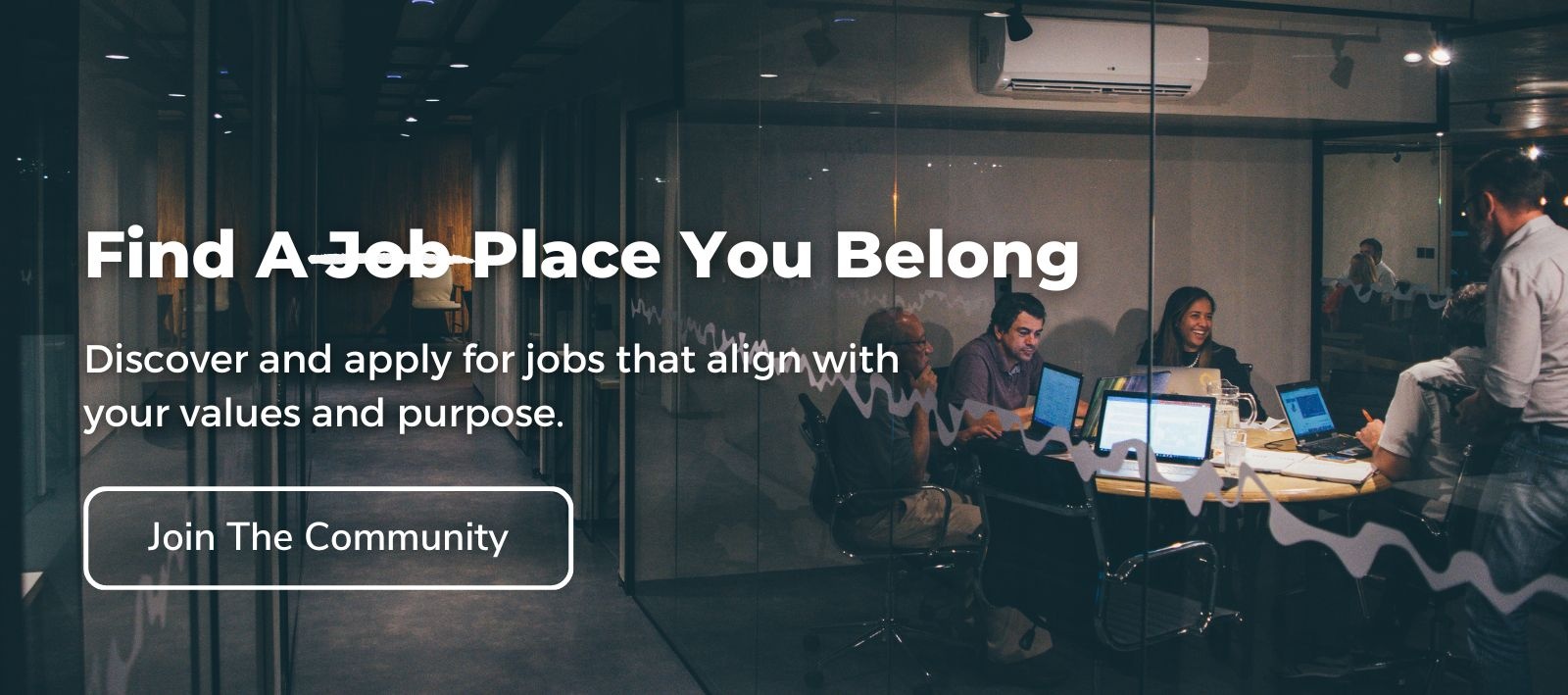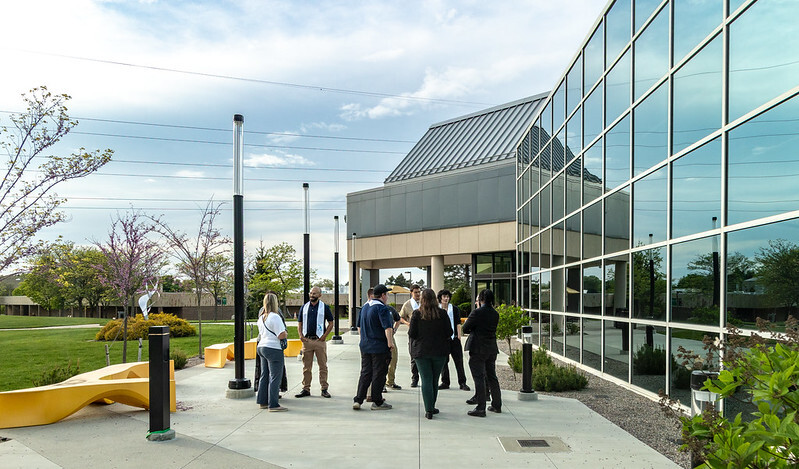This is the second blog in a three-part series on strengths-awareness. Check out the first post: The Power of Strengths-Awareness: Bringing your best self to work in an age of uncertainty. Stay tuned for the third installment.
What creates "strengths-awareness?"
Simply put, it is committing to the process of discovering, appreciating, engaging, and accelerating what you are best at doing—and then mastering applying these skills to everyday situations, unforeseen events, and planned opportunities through practice.
You might be thinking, why do I need to be aware of my strengths? If I have strengths, don’t I just use them?
We do use talent that comes natural to us. However, there are obstacles and pitfalls to applying our strengths in a healthy and optimal way. We can be over or under-using them. We might be in a work environment where our strengths aren’t being tapped or are not valued. Or, we are in a role that simply doesn’t need what we do best.
All of this can lead to frustration, unhappiness, and dreading every Monday.
Finding happiness at work through strengths
When beginning the journey of strengths awareness, the first hurdle is that we are so good at what we are good at that we don't always recognize our talents as strengths. We might think, if this is so easy for me to do, everyone must be able to do it.
Another obstacle is that what people learn rarely gets applied effectively over time to real-life experience.
"One learns from books and example only that certain things can be done. Actual learning requires that you do those things." – Frank Herbert
Practicing the application of your strengths and mastering them, is like building muscle. Use it or lose it.
Recently, a client shared with me that she decided to go through the 12-week StrengthsCORE™ coaching program because she was frustrated with not being heard on her team. She said, "When I disagree with someone, I don't have the confidence to speak up because I think if I say something and I'm the only one who thinks this way, I must be wrong."
This intelligent, accomplished, successful woman was held back by the lack of awareness and healthy application of her natural talent.
She came to discover that her number one strength from the results of the CliftonStrengths Assessment was Harmony. Through peeling back her limited beliefs, she realized that when she actively applied her strength of Harmony, she calmly sought areas of common ground and mutual purpose as a way to share her ideas. From reflecting on past experiences, she identified times when she reduced friction between others, built consensus, and found the space where there was agreement and a path forward. However, her strength felt stymied on this current team, so she pulled back, felt conspicuous, and lost confidence in her abilities.
Of her top ten strengths, she felt like Harmony was the key to helping her get over the initial fear to share her thinking with her team. In our wrap-up session, she shared, "In one word, I feel confident. Not in a boastful way, but knowing and applying my top ten strengths allows me to believe in who I am, what I bring to the table, and know that I am unique – and I celebrate this uniqueness. I now understand that what I care about, my values, how I approach conversations, what I contribute matters. My voice is as valuable as anyone else's in the room. I'm speaking up more, and the team appreciates my perspective."
Another client with the Strategic strength ranked number two said, "I always see so many alternatives to solve one problem, it can be overwhelming, and I feel like I am jumping all over the place—unfocused. Now I know, I am offering some great ideas."
Eventually, this client recognized that her Strategic strength allowed her to consider all the possibilities, evaluate them, and understand the best path forward. Her talent to imagine, anticipate, and course-correct offered agility and adaptability to her project work, and when applied, people started to ask her for ideas.
How do you develop your strengths?
Becoming aware of your strengths can be so helpful at work, but how do you develop them?
Tom Rath, the author of StrengthsFinder 2.0, equates it to this:

Talent (a natural way of thinking, feeling, or behaving) × Investment (time spent practicing, developing your skills, and building your knowledge base) = Strength (the ability to consistently provide near-perfect performance).
The critical piece in the equation is the investment you are willing to put into the process to master your strengths. Invest in yourself, bring more of what you already do naturally, and contribute at a higher level of excellence.
You make the journey of discovery, appreciation, engagement, and acceleration on your own or through a guided process with a Certified Strengths Coach. It takes time and commitment.
There are a couple of ways to get started:
Easy DIY Strengths Discovery
-
Find Your Flow State – check out Part One of this article series. Tell a story of when the identified strength helped you overcome an obstacle or problem at work.
-
Free Online Tests – a couple of options:
- High5Test
- Practice Aptitude Tests -
Paid Online Assessment
- CliftonStrengths Assessment
Strengths-based Coaching Programs | a guided experience with learning accountability
There are many strengths-based coaches and consultants to help you on your path to strengths awareness.
StrengthsCORE™ leads you through a practical and transformational self-awareness process to master your top five or ten strengths from the CliftonStrengths Assessment. You learn about your intrinsic behavior, motivations, problem-solving approaches, and what you are naturally good at doing. We start with a framework overview. Then, you learn to appreciate, engage, and accelerate your strengths to achieve your goals like: managing your career, becoming a more tuned-in leader, and developing your leadership skills.

Some strengths-based questions to ask yourself:
-
What activities, events, projects, conversations do you gravitate to at work?
-
What kinds of problems can you most easily dig into and solve?
-
In what areas do you feel a sense of natural excellence in performance?
-
What are you doing when you lose track of time?
-
What do you most often want to get right back to doing?
-
What energizes and enlivens you or depletes and drains you?
The power of strengths-awareness is a gift you make to become more of who you already are and take your whole life to a new level of performance and fulfillment.
Ferris Bueller got it right when he said, "Life Moves Pretty Fast. If You Don't Stop and Look Around Once In A While, You Could Miss It." The same thing goes with strengths-awareness.
The outcomes of being strengths-aware:
-
Creating a work life where you can healthily express your strengths 80% of the time
-
Being clear on your work-life values and how to experience them consistently.
-
Listening more deeply to yourself and others
-
Achieving work success and work fulfillment as two different experiences
-
Speaking the language of your strengths and develop your most optimal way of communicating with others
-
Being present and choose your response in the moment based on your strengths
-
Engaging with others' strengths, building positive rapport, and mutually beneficial partnerships
Engaging your strengths fully and in a healthy way is a choice, and an investment of time. It can also open up a whole new way to show up in the workplace, optimize performance and experience an increase in fulfillment.
A client, Head of Quality, who felt like she lost her mojo at the height of the pandemic, shared this, “Through exploring my core strengths in rich detail, I began appreciating what I thought were my least valuable attributes. In short order, she helped me build the foundation I needed to find my way out of the turmoil — back to confidence and clarity."
Life does move pretty fast. If you don't stop and discover your natural talents and develop them into strengths once in a while, you could miss a work-life experience filled with high performance and fulfillment.
About Kristina Mercier, CPC, PCC:
 Kristina Mercier, CPC, PCC is the founder of Core Momentum Group, a work-life leadership & well-being coaching firm. Along with 20 years of coaching experience in private practice, as an executive career consultant, and as a high-performing team leader at a global corporation, she is a Gallup Certified Strengths Coach, Breathwork Coach, and educated in conscious leadership and well-being. One of her passions is facilitating strengths-awareness and values leadership through her StrengthCORE™ Coaching Program. She can be reached via Linkedin or the website.
Kristina Mercier, CPC, PCC is the founder of Core Momentum Group, a work-life leadership & well-being coaching firm. Along with 20 years of coaching experience in private practice, as an executive career consultant, and as a high-performing team leader at a global corporation, she is a Gallup Certified Strengths Coach, Breathwork Coach, and educated in conscious leadership and well-being. One of her passions is facilitating strengths-awareness and values leadership through her StrengthCORE™ Coaching Program. She can be reached via Linkedin or the website.





.png?width=50&name=Erin%20Gregory%20(1).png)


